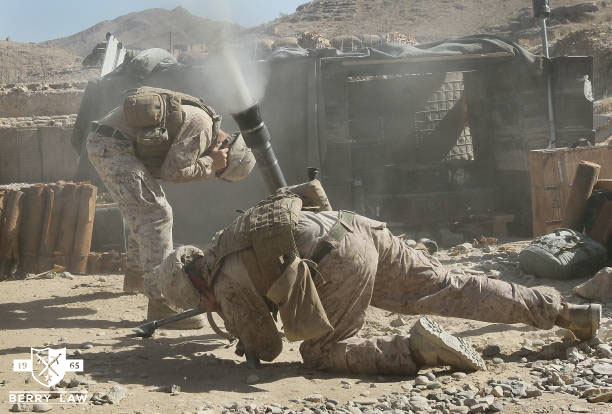Common Exposures

Reviewed by Jerusha Hancock, Veterans Law Attorney Paratroopers are among the most physically tested service members in the U.S. military. Years of jumping, carrying heavy gear, and enduring hard landings often leave lasting damage. These
Read Full Article
Reviewed by Jerusha Hancock, Veterans Law Attorney When a Veteran has a family, their benefits should extend to the people they care for most. The U.S. Department of Veterans Affairs (VA) provides benefits to eligible
Read Full Article
VA Benefits • Veterans First VA Special Monthly Compensation (SMC) Benefits and Rates Reviewed by John Berry, Veterans Law Attorney Call 888-883-2483Free SMC Evaluation On this page What Is Special Monthly Compensation? How the VA
Read Full Article
VA Benefits Guide VA Dependency and Indemnity Compensation (DIC) Benefits and Rates Reviewed by John Berry, Veterans Law Attorney Call 888-883-2483 Free Consultation When a Veteran passes away, their family should never be left without
Read Full Article

To review your case, the documents we may request include your decision letter from the VA and DD-214.
If you received an honorable discharge and have a disability you believe is related to your active-duty service, then you may be entitled to benefits.
If the VA denied your claim, to get the VA to review its decision, you will either need to appeal or reopen it, depending on when the VA denied it. To get your claim approved, you will need to prove the elements at issue that the VA justified their denial on, such as an event in-service, a current disability, etc.
Extended periods of time following service are not necessarily a disqualifier for a claim or receiving help from an accredited VA representative.
Even if you never deployed, you may still qualify for entitlement to VA disability benefits. Deployment is not a pre-requisite for receiving VA disability benefits. If you were injured during your active-duty service or an event occurred during your active duty service that caused a present disability, you may still qualify for benefits. It’s best to discuss the specifics of your case with a qualified attorney at Berry Law.
Medical documentation of an event or injury in service is not required for service connection to get granted. Other documents such as statements and buddy statements corroborating an in-service event or injury may suffice. Our team at Berry Law can review and provide a game plan of what evidence we can use instead of medical evidence to submit on your behalf.
While our team is not comprised of medical professionals, we have various medical references to write nexus opinions that have been successful in the past. Our team of attorneys will be able to review your file to determine if an outside medical opinion may be needed or not.
You may qualify for backpay if the VA errs in assigning the wrong effective date for your increase rating grant or a grant of service connection. There are a lot of effective date rules that our experienced team at Berry Law always review and challenge the effective date, if warranted.
It depends on the type of case you have and how much work you want to. If you have all your records, a simple case, and are ready to do the work to fight the VA—you may not need a lawyer at all. If you want guidance or have a complicated case, we recommend getting legal counsel.
Nothing upfront. We only take a fee if we win. If you are granted service connection, the VA grants an effective date for that award. If that effective date is earlier than today, the VA will pay you a back pay award. Berry Law takes a portion of that award as our fee. If we do not win your case, you pay us nothing. If we do win, you pay us out of that backpay, but you still continue to receive monthly payments from the VA and that is entirely yours.
We try to work as quickly as possible. We cannot give you a firm deadline of when we will file your claims because it depends on when we get the information from you. We will file your claims as quickly as we can, and before any deadlines set by the VA.
When you hire us, we do the heavy lifting. We take care of responding to all rating decisions and VA requests for information. If we need something from you, we will let you know. Otherwise you can sit back and let us do the work.
Contacting us does not create an attorney-client relationship.
Our monthly newsletter features about important and up-to-date veterans' law news, keeping you informed about the changes that matter.